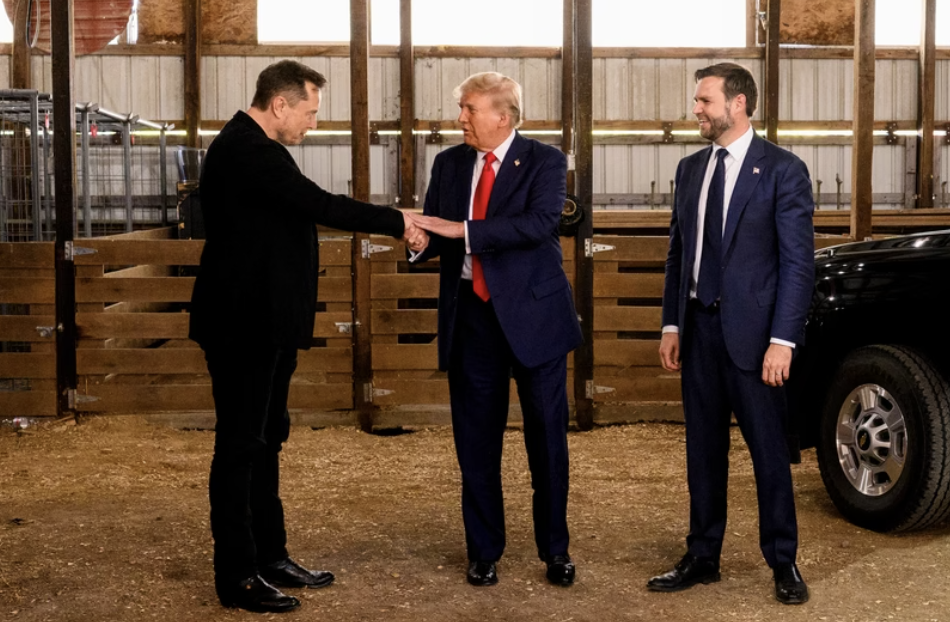In the realm of American politics, few figures loom as divisively large as Donald Trump. Known for his unorthodox approach and polarizing policies, Trump’s appeal seems rooted in a fusion of populist rhetoric and an affinity for the wealthiest echelons. While Elon Musk often steals the spotlight when discussing billionaire supporters, there’s a larger assembly of affluent backers whose influence merits examination.
A Glimpse into Trump’s Wealthy Allies
The Koch Brothers: Titans of Industry and Ideology
Among the cadre of billionaires who have thrown their weight behind Trump, the Koch Brothers are perhaps the most storied. The Koch family, with interests spanning from oil to ranching, has long been synonymous with conservative causes. Known for their libertarian views, the Kochs have often grappled with Trump’s nationalistic policies but have ultimately found common ground in tax reforms and deregulation.
- Charles Koch: The more publicly vocal of the duo, Charles has been forthright about supporting policies that benefit big businesses.
- David Koch (deceased): Though David passed in 2019, his legacy in political donations and conservative advocacy continues to ripple through the fabric of American politics.

Sheldon Adelson: The Casino Magnate
Another staunch supporter was the late Sheldon Adelson, whose empire stemmed from the luminous allure of casinos. A fixture of Republican mega-donor circles, Adelson’s motivations were rooted in staunch support for Israel and conservative foreign policies. His donations to Trump’s campaign in 2020 amounted to tens of millions, underscoring his influence in the GOP.
- Philanthropy: Despite criticisms, Adelson made significant contributions to medical research and Jewish heritage institutions.
- Influence on Policy: Advocating for pro-Israel stances, his reach extended well into Trump’s diplomatic strategy in the Middle East.
Robert Mercer: The Data-Driven Mogul
Robert Mercer, co-founder of the data-analytics company Cambridge Analytica, has been shrouded in both mystery and controversy. Known for his major investments in far-right media outlets and platforms, Mercer’s backing has been pivotal in fueling Trump’s strategic online presence and voter engagement efforts.
- Cambridge Analytica: The firm played a significant role in the 2016 presidential campaign through data-driven advertising strategies.
- Breitbart News: Mercer’s investments in this platform created a haven for alt-right discussions and narratives.
Billionaire Influence: A Political and Economic Double-Edged Sword
The considerable sway exerted by these billionaires is not only a testament to their vast financial resources but also to their strategic acumen in shaping both policy and public opinion. The question, however, that lingers ominously is whether this influence aligns with democratic ideals. The tension between wealth and governance is a narrative that sees recurring chapters throughout history.
The Role and Impact
Billionaires and their wealth enter the political arena under the banner of transformative power, but not without triggering contentious debate. On one hand, these individuals bring substantial resources to the table, facilitating campaigns and driving initiatives that might otherwise struggle for traction. On the other hand, their involvement often evokes concerns about disproportionate influence and the backdoor steering of policies in favor of the elite.
- Policy Influence: Though championing shared objectives, their influence means potential susceptibility of policies to serve billionaire interests more than public welfare.
- Campaign Financing: Their contributions highlight the significant divide between grassroots funding and money-driven politicking.
- Economic Investments: Beyond politics, billionaire investments, particularly in innovation and technology, hold profound possibilities for economic growth and job creation.
The Wider Economic Ripples
Amidst the exhaustive political discourse, the economic footprint of billionaires and their investments cannot be overlooked. Their ventures often lead to pioneering advancements in technology and industry. Moreover, their philanthropic endeavors frequently catalyze societal programs and bolsters communal infrastructures.
So, as the dance between billionaires and politics pirouettes onward, it remains essential to be astutely aware of their impact—a gilded tango that can either propel the economy towards elysian heights or mire it in the shadowy depths of inequity.
While Trump’s roster of elite supporters remains enigmatic, their dual-edged role in both politics and the economy invites a consistent, keen eye from the public and policymakers alike. E’er watchful of such influence, we may just find a balance between wealth and democracy that ultimately benefits all.